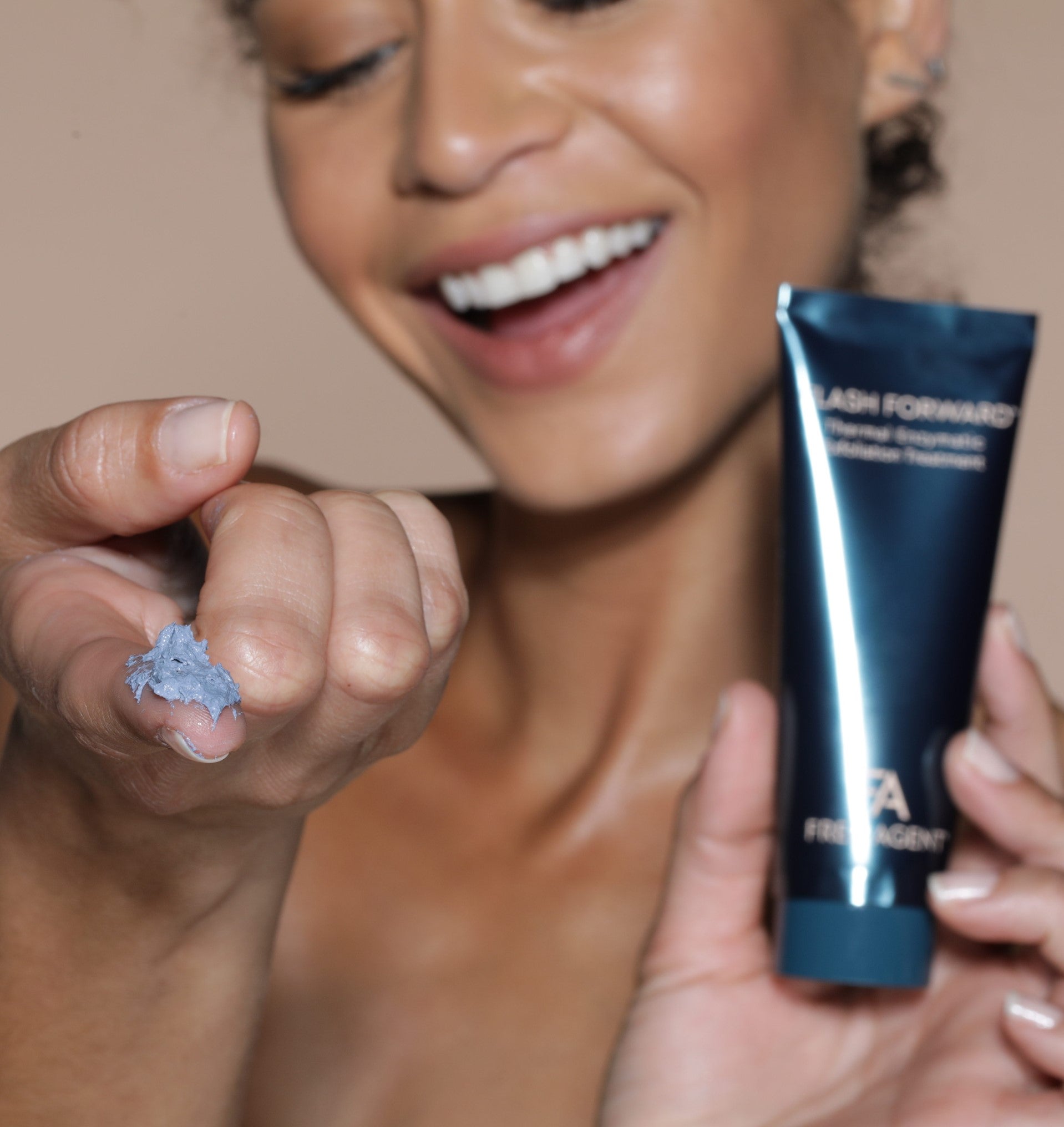The Scoop
Should I Exfoliate In Fall And Winter, Or Will It Dry My Skin Out?
There are things we need to adjust when it comes to switching up our skincare routines from summer to winter, but exfoliation is something that should be a mainstay all year. As we spend more time inside with the heater on, our skin can become drier and often flakey. It might seem like exfoliating dry skin will be too harsh or cause even more dryness; rest assured, if done properly, exfoliating your skin can help you keep your dewy summer glow all winter long.
by Kate Grant
2 years ago

Why exfoliating in the winter is important:
Skin is prone to being much drier in the cooler months, partly because we spend more time inside with recirculated air. As dry, dead skin cells build up on the top layer of skin, it creates a sort of barrier that prevents the proper absorption of any hydrating and moisturizing products you apply. This leads to a cycle of even more dry skin that gets further irritated by the buildup of dead skin cells, which can result in clogged pores and breakouts.
Another reason to exfoliate is to prevent breakouts. As dead skin cells build up on the top layer of skin, it actually traps dirt and oil that will clog pores. According to board-certified dermatologist, medical director and co-founder of Dermatology Associates of New York, Dr. Debbie Palmer, “When we exfoliate, our superficial skin cells send signals to the layers of cells below to increase new cell production. This speeds up cell renewal and returns our radiance or youthful glow.”
This does not mean that you should jump in and start exfoliating every day. When it comes to exfoliation, we firmly believe that there can be too much of a good thing.
There is such a thing as over-exfoliating. If you exfoliate too often, you can actually damage the protective lipid barrier of your skin, causing more dryness, and irritation which will stimulate your sebaceous glands to produce more oil, leading to acne and breakouts. There are gently exfoliation products that can be used daily, but a safe rule of thumb is to exfoliate 3x a week max, and always follow up with your hydrating and moisturizing products.
What type of exfoliator should I use?
There are a few different types of exfoliators, and they each operate slightly differently. The two main forms are physical and chemical exfoliators.
Physical Exfoliators
The OG type of facial exfoliation is the physical exfoliator (think St. Ives) – this type of product has a rough ingredient that helps to physically scrub the top layer of skin, buffing away dead skin cells for instantly brighter, and smoother skin.
One thing to look out for is whether or not the exfoliation ingredient is spherical. Many brands use ground up crystals, nuts, or sugar as the main ingredient in their physical exfoliators. This can actually do more harm than good by creating micro-tears and ultimately damaging the top layers of the skin.
Chemical Exfoliation
There are several types of chemical exfoliators ranging from AHA's (alpha hydroxy acids), BHA's (beta hydroxy acids), and various enzymes. Chemical exfoliators work by breaking the bonds between skin cells and loosening up the dead cells so they can easily sluff off.
Chemical exfoliators come in all types of products ranging from cleansers, scrubs, wipes, toners, and even moisturizers. Depending on the type of chemical exfoliation, you might need to be careful of photosensitivity and sunburns. Some chemical exfoliators are meant for daily use, while others should be used no more than 2 – 3 times a week, or you run the risk of damaging the protective lipid barrier of your skin.
At Free Agent, we are big believers in the power of a good exfoliator. Not only does it instantly brighten and even out texture, it thoroughly preps the skin for your leave-on treatment products, creating the perfect canvas for a smooth makeup application no matter what time of year.
For the ultimate at-home exfoliation treatment, check out Flash Forward. The hyper-clean formula is alcohol-free (to prevent over-drying), and is packed with 10% Lactic Acid, Multi-Fruit Enzymes, Jojoba Spheres, and our Thermal Warming Complex to for an intense, deep exfoliation that evens tone and texture, and helps prep your skin so your leave-on treatments work harder for you.
# # #
Reference:
https://www.aad.org/public/everyday-care/skin-care-secrets/routine/safely-exfoliate-at-home

0 comments